Using Libraries to Support Literacy and Personal Development in Children and Young People
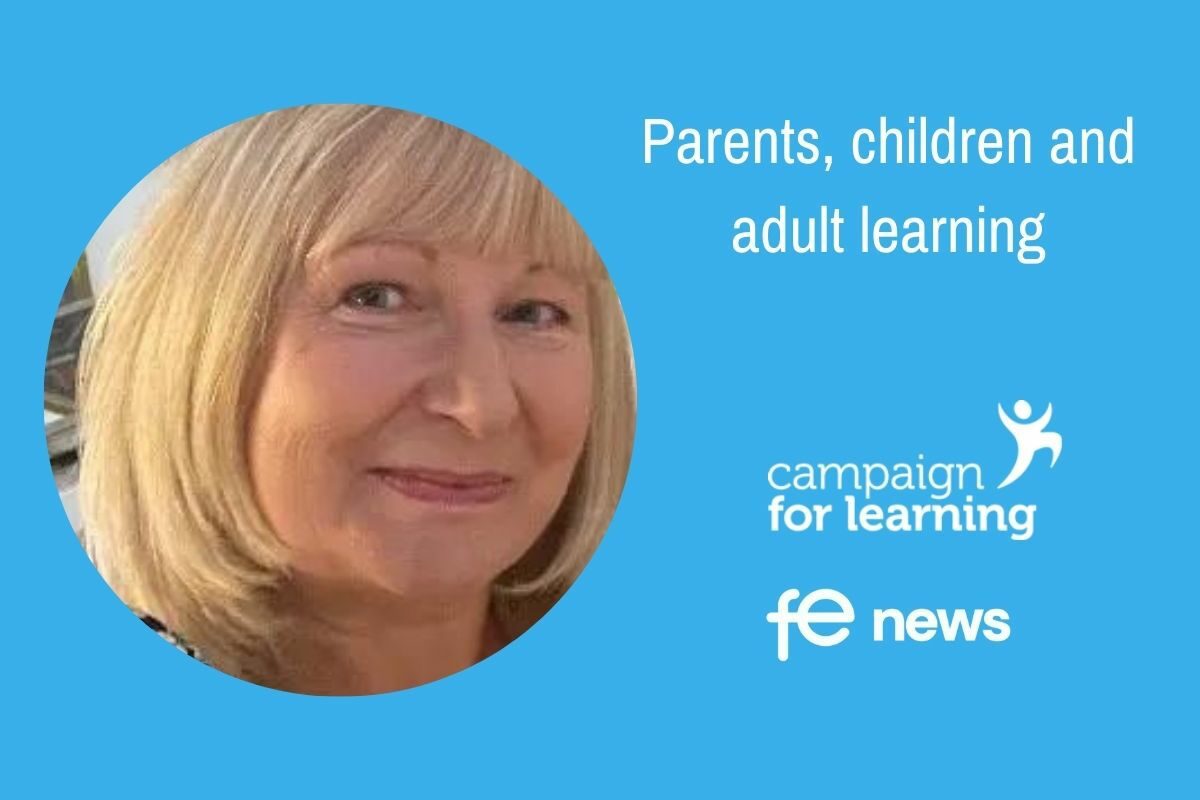
Public libraries welcome children from the very earliest months of life, helping parents and carers to support them as they grow and learn. Working with schools and other partners, libraries provide a range of activities, programmes and initiatives which introduce, extend and refresh the library experience for children.
At the Association of Senior Children’s and Education Librarians (ASCEL), our mission is to ensure excellence in library services for children and young people in public libraries and School Library Services. Our members are the staff working on the ground to manage and deliver the best support for children and young people in these services.
Supporting Children
As our joint report ‘Children’s Library Journeys’ shows ‘one of the major strength of libraries is their ability to support the development of children’s literacy skills and to encourage them to acquire a love of reading from an early age. By engaging with children when they are very young, and parents-to-be before a child is born, libraries can become rooted in family life’ (Children’s Library Journeys. Laura Crossley, 2015). As free and accessible spaces, offering a range of opportunities for family engagement, libraries can support early speech and language development in children. Encouraging parent/child interactions with books can have a positive impact on the home learning environment.
A Universal Offer and Children’s Promise
The Universal Library Offers demonstrate the power of public libraries to connect communities, improve wellbeing and promote equality through learning, literacy and cultural activity. They focus on Culture and Creativity, Health and Wellbeing, Information and Digital and Reading.
These universal offers are underpinned by The Children’s Promise (Box 1), developed by ASCEL in partnership to ensure that children are actively involved in decisions about the services that affect them, are offered opportunities to volunteer and can experience exciting inspirational activities through their library.
The promise follows children and young people throughout their library journey, from pre-birth, through early years and primary, transition to secondary school and onto young adulthood.
Box 1
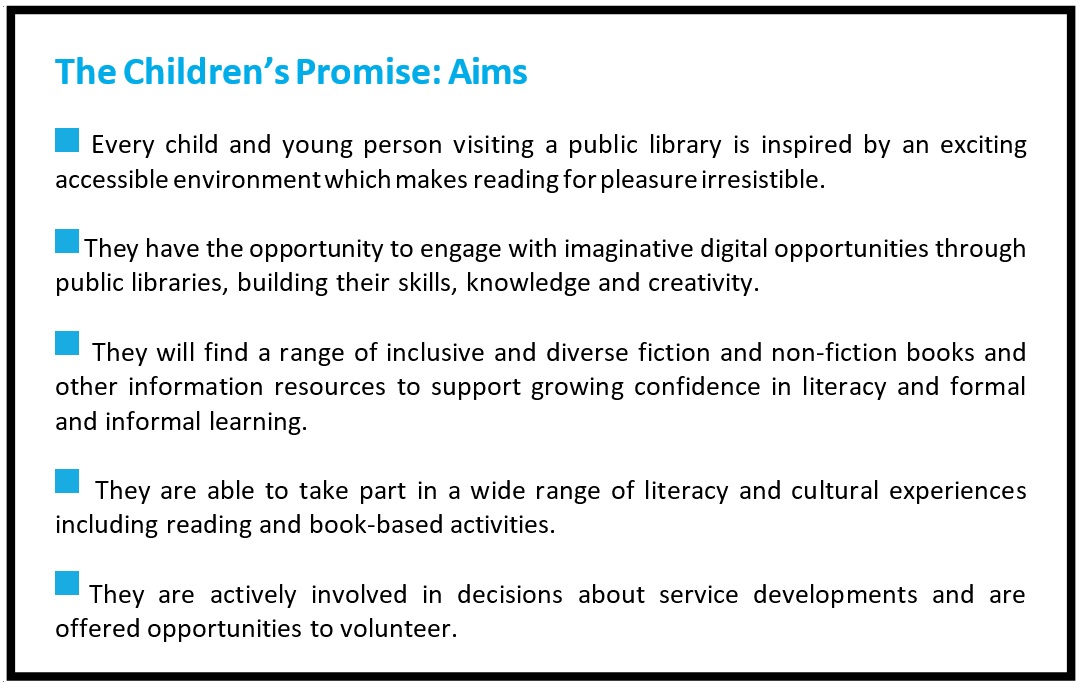
That journey can include pre and post-natal sessions to support new and expectant parents; ‘Rhymetimes’ and storytimes to encourage parent/child engagement; inspiring book collections to encourage reading for pleasure; exciting digital activities to inspire ambition; and creative teen activities to promote a sense of belonging and inclusion for young people.
Delivering the Children’s Promise
By embedding the Children’s Promise in library services, we can ensure an inspirational and aspirational offer for children and young people, and help parents, carers and families to benefit from our library services. To do this we need to consider some key influencing factors.
Engaging and Supporting Children and Families
We need to identify and break down barriers to engagement with libraries and reach out to those most disadvantaged in our communities.
This can be supported by engaging and consulting with children, young people and families at all key points of the Children’s Library Journey. We also need to develop staff training policies that focus on upskilling the library workforce to work with diverse communities. The development of a children’s stock selection policy which reflects the diverse world children live in is also crucial so that children see themselves in the books on the library shelves.
The Children’s Promise aims to give children the opportunity to engage with imaginative digital opportunities and build their skills, knowledge and creativity. Continuing to develop the digital skills of the library workforce will inspire confidence and ambition in children through exciting digital activities.
Understanding the key benefits of the comprehensive activity programmes that libraries deliver, such as Rhymetimes and the Summer Reading Challenge, can help further embed activities that support children and families.
Libraries can also support parents, carers and young people more widely with reading and information on key issues, such as those reflected in the Reading Well collections developed to support mental health and wellbeing.
Partnership Work
Public libraries and School Library Services understand the importance of working with key partners to help deliver the Children’s Promise and have a history of developing strong and productive relationships and strategies with The Reading Agency, Booktrust, National Literacy Trust, Children & Young Peoples Mental Health Coalition and others.
To help deliver the best results for children’s physical and mental health and wellbeing, libraries should continue to develop strong relationships with partners in health.
Libraries and School Library Services hold considerable resources – working pro-actively with schools can ensure these are used most effectively to inspire and support children and young people.
Libraries have a committed and enthusiastic workforce with real passion for books, reading and creativity. It is the can-do attitude of the library workforce combined with strong partnerships, brilliant resources and a desire to reach out to those who need support most which will make a real difference to the lives of children and young people going forward.
Recommendation 1
Libraries, School Library Services and organisations across the cultural, health and education sectors should continue to build strong relationships – there is real strength in working together towards mutual aims.
Recommendation 2
Libraries should recognise and try to understand the real barriers to engagement and develop their practice accordingly, underpinned by consultation and supported by workforce development focused on working with diverse communities.
Recommendation 3
We should never forget the power of reading for pleasure. Let children read what they want to read and give them the opportunity to see and hear adults experiencing joy in reading. Libraries have the power to support this through their services, activities and programmes. Organisations working with children, young people and families can support this by including library referrals in their work.
By Christine Myhill, National Chair, ASCEL
Read Campaign for Learning‘s press release here.
Parents, Children and Adult Learning: Family Learning Policy in the 2020s
Read previous articles here:
- Driving-Up Parental Engagement in Educational Catch-Up, Sam Freedman, Research Fellow, Institute for Government
- Focusing on Parents to Improve Social Mobility, Lee Elliot-Major, Professor of Social Mobility, University of Exeter
- Encouraging Parental Involvement in Children’s Learning Through School Communication, Adrian Burt, Founder, MarvellousMe
- Balancing Parental Support and Independence of 16-18 Year Olds in Further Education, Noni Csogor, Research and Policy Manager, Sixth Form Colleges Association
- Involving Parents and Guardians in Careers Support for 11-18 Year-Olds, Lesley Thain, Head of Career Programmes, Gatsby Foundation
- Enabling Parents to Get What They Need to Support Children to Learn, Kerry-Jane Packman, Executive Director, Parentkind
- Working with Parents in the Early Years to Get More Children School Ready, Louise Bazalgette, Deputy Director, Nesta
- Using Technology to Help Parents Bridge the Gap in Child Learning, Tom Harbour, Chief Executive, Learning with Parents
- Targeting Support at Carers to Improve the Educational Outcomes for Children in Care, Aoife O’Higgins , Director of Research, What Works for Children’s Social Care
- Supporting Parents to Build Children’s Financial Capability, Sarah Porretta, Insights Director, Money and Pensions Service




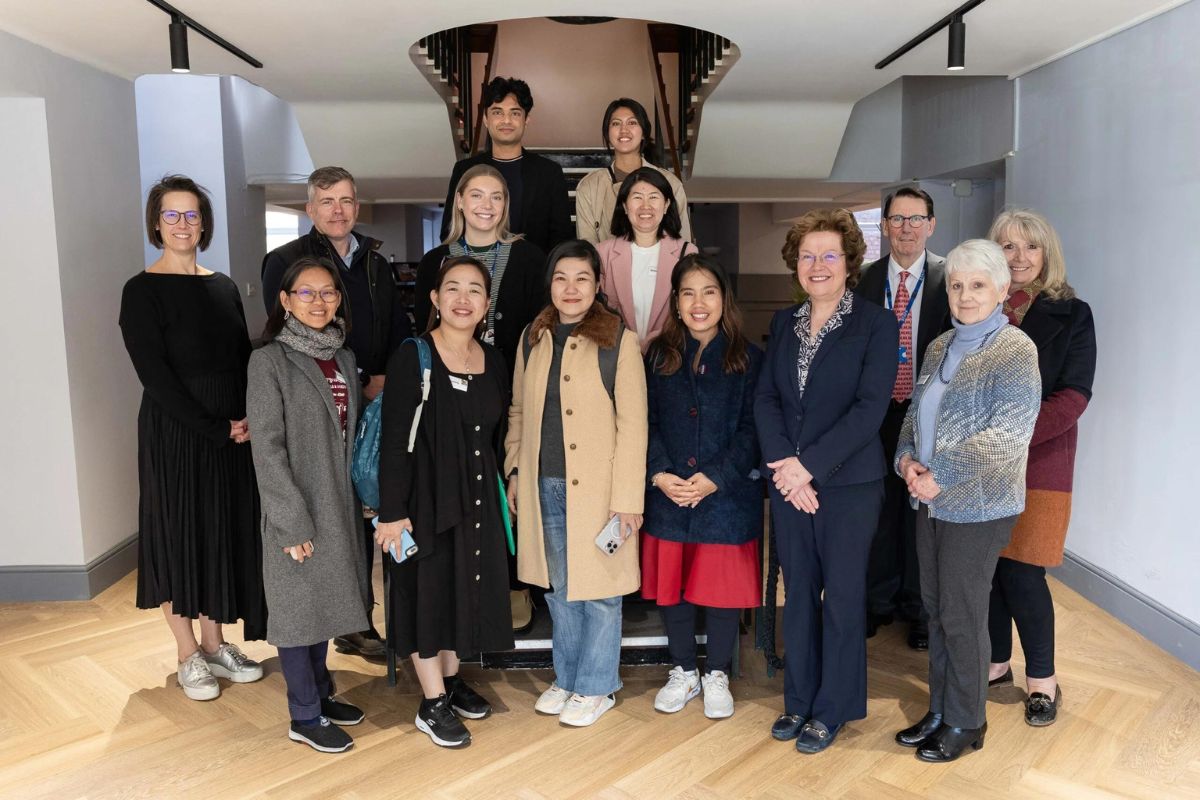
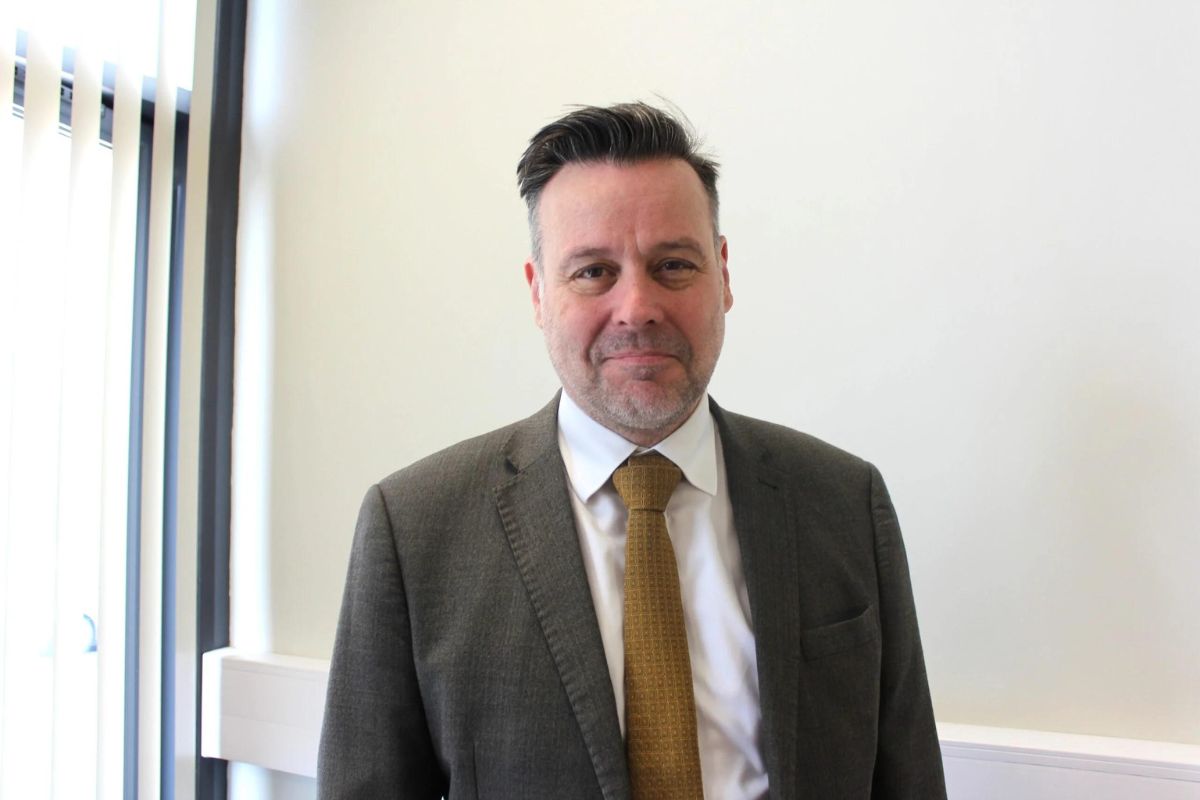



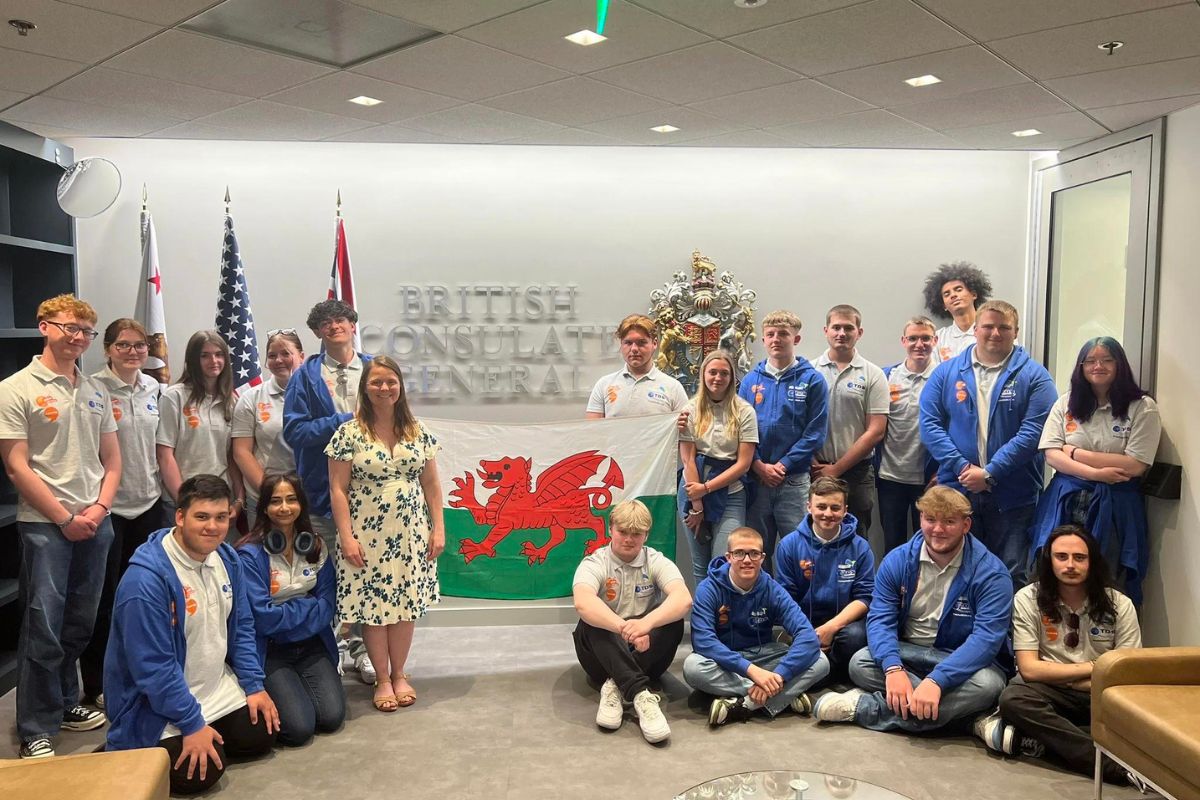
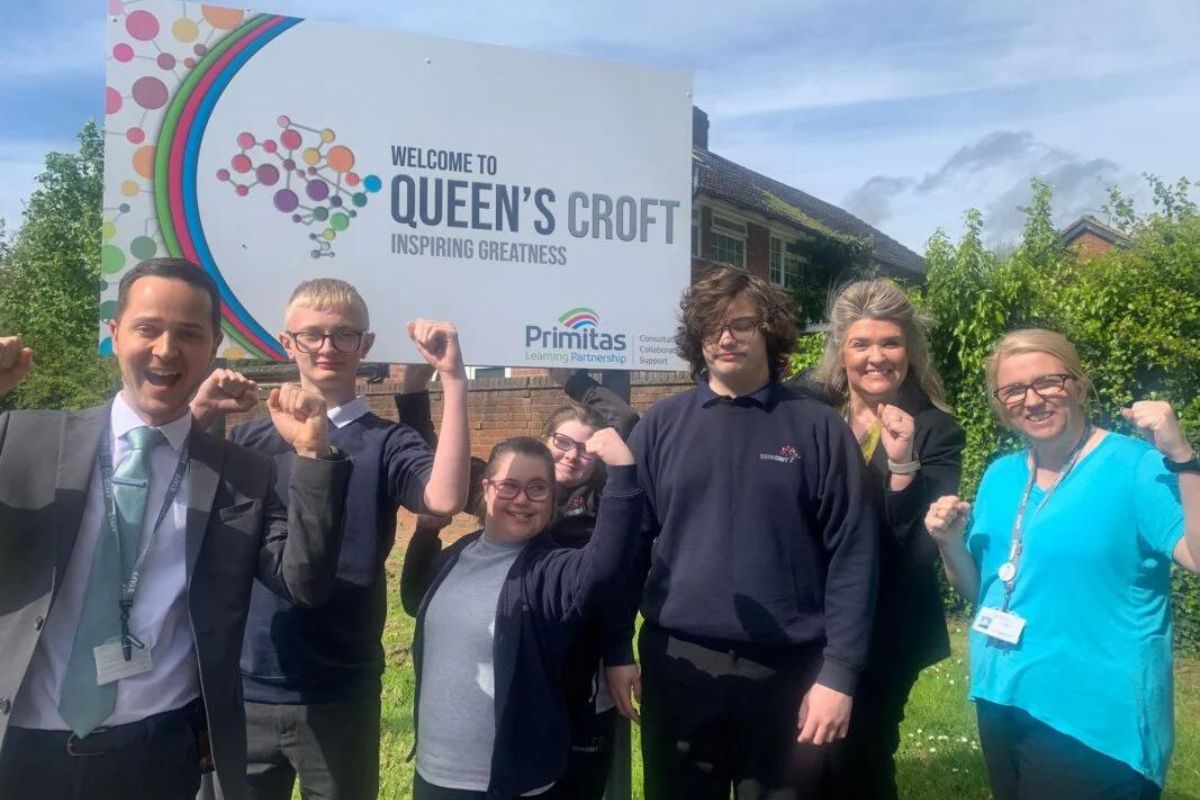
Responses